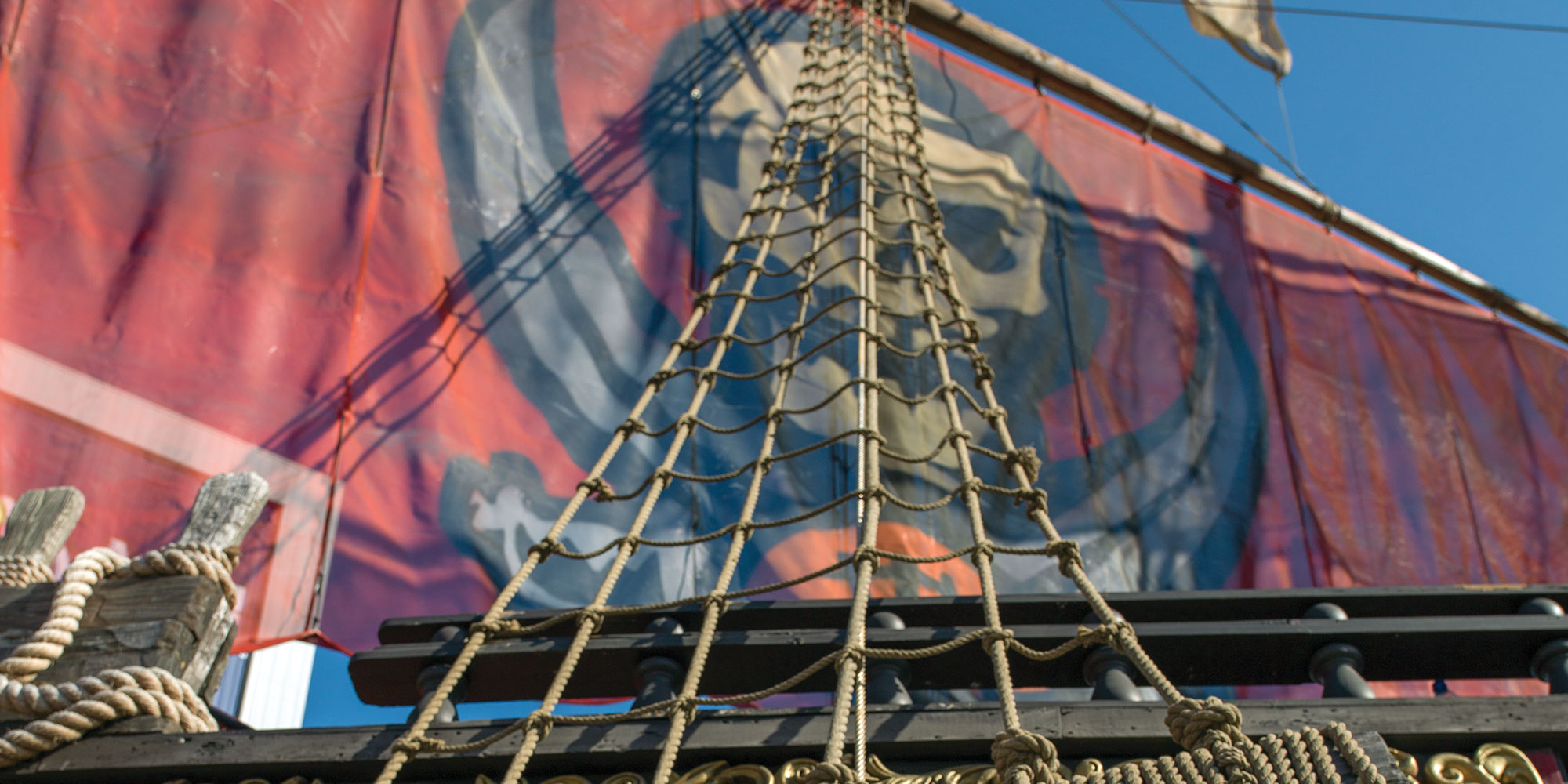CREW, PREPARE TO DISEMBARK
The countdown has entered its final days. For the fifth time, Tampa Bay is stepping up in unusual and unpredictable circumstances to pull off the biggest game of the year with all eyes on us. In a normal year, that means an estimated economic impact upwards of $500 million, celebrities and parties galore, and hotel rooms packed not only in Downtown Tampa, but from the beaches through the I-4 corridor.
This is a different year. And very likely, a much different Super Bowl. At the eleventh hour of game-week preparations, we’re entering the eleventh month of the coronavirus pandemic. COVID-19 has changed the world — particularly the world of sports, which has labored to revise and safely complete its seasons — and medical officials predict that the American virus death toll could reach a half-million not long after Super Bowl LV (55) is staged on Feb. 7 at Raymond James Stadium.
“We’ve had to be nimble, adaptable and somewhat innovative in all of our planning,’’ said National Football League executive vice president Peter O’Reilly, who oversees the Super Bowl. “It will be a different Super Bowl and it’s safety first, all the way.
“But at the same time, we believe this will be a really powerful and special Super Bowl. And that starts with the leadership in Tampa Bay. You have people who trust each other. They have experience in putting on big events, and they are selfless. They are so resilient because every day they are dealing with unpredictable questions.’’
How many fans will be allowed in the stadium? Will the game be pushed back? What will Super Bowl week look like? “We don’t have a playbook for this,’’ said Tampa Bay Super Bowl Host Committee CEO and president Rob Higgins, who is the executive director of the Tampa Bay Sports Commission. “Nobody could have envisioned what has transpired over the last few months. But it has never been more important to be as focused as possible and execute at the highest level. There’s no telling what the hotel numbers are going to be like. There’s no telling what the economic impact is going to be like. But I can promise you the media value will be phenomenal, and the social impact will last a long, long time after this game has come and gone.’’
It will still be a showcase of Tampa Bay’s vistas and venues, including the Tampa Riverwalk, the 2.7-mile postcard-like setting that features the week’s foremost fan gathering, the Super Bowl Experience, for the first time offered as a totally outdoor and free event. It will still be a highly rated television spectacular, a singular event broadcast to 180 countries, which generates as much buzz for the commercials as the game itself. And it will still be fun. These days, who couldn’t use a little fun? In a bifurcated nation, it could also serve as something to rally around. That has been a trademark of Tampa Bay’s Super Bowls.
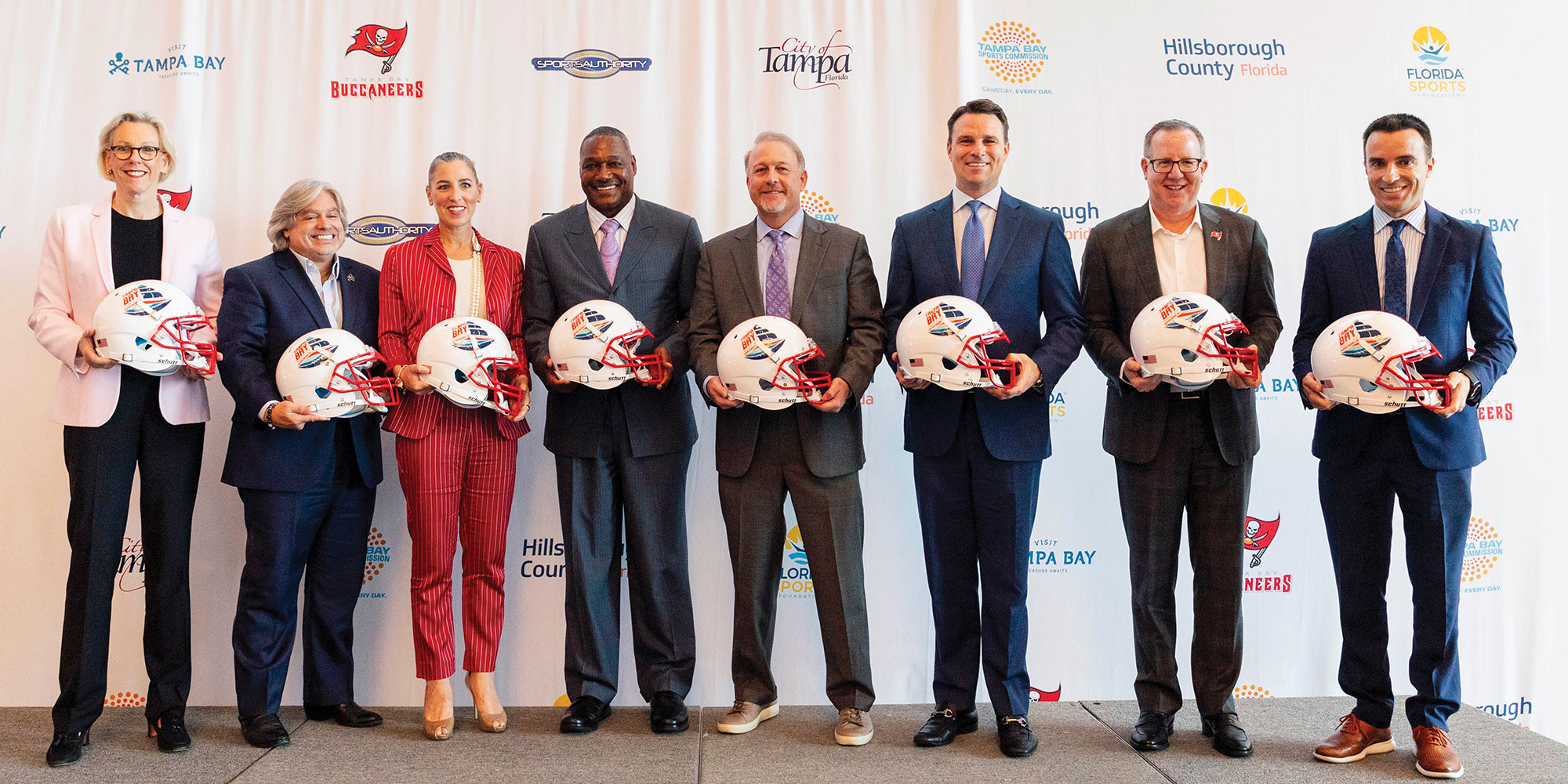
Bay Buccaneers Co-Owner & President of the Buccaneers Foundation Darcie
Glazer Kassewitz; Host Committee Co-Chairman Derrick Brooks; Hillsborough County Commissioner Ken Hagan; Host Committee Co-Chairman Will Weatherford; Buccaneers Owner & Co-Chairman Bryan Glazer; Host Committee CEO & President Rob Higgins (PHOTO: TAMPA BAY SUPER BOWL HOST COMMITTEE)
ALL HANDS ON DECK
Shortly after the NFL awarded an expansion franchise to Tampa in 1974, businessman and civic giant Leonard Levy asked about the requirements for getting a Super Bowl. Eyebrows were raised. Tampa Bay persisted, won the bid in 1981 and hosted its first Super Bowl XVIII (18) in 1984.
“I look back now, with the hotels that were in place [then], and wonder, ‘How the heck did we pull that off?’” said retired NFL executive Jim Steeg, who oversaw the Super Bowl for a quarter-century. “Tampa people know how to get things done. It’s a unique and special place.’’
Almost immediately, Tampa Bay made a unique and special imprint on Super Bowl planning. Levy remembers a series of forward-looking conversations among local organizers, resulting in the formation of the first Super Bowl Host Committee. Tampa International Airport was filled with greeters. Cab drivers took customer-service classes. Hotels and businesses were urged to not gouge the visitors. It all played into the city’s promotional mantra: If they love us when they leave us, they’ll be back.
“The ability to get that first Super Bowl and to keep getting Super Bowls has helped grow our area and transform it into what it is today,’’ Levy said. The NFL, duly impressed, entrusted Tampa Bay with the Silver Anniversary Super Bowl in 1991. Then local officials got the biggest test of all.
A few weeks before kickoff, the Persian Gulf War began raging in the Middle East. Nightly news reports showed the Scud missile attacks, and there were fears of Tampa’s Super Bowl being the target of an Iraqi terrorist attack. For a short time, there was conversation about canceling the game.
Two weeks out, Tampa Stadium was sealed with a concrete barrier and chain-link fence constructed beyond the gates. Police dogs and metal detectors were commonplace.
“Going through those long security lines at the stadium, you think you’d see pushing and shoving,’’ Steeg said. “But the fans were so patient. They knew this had to be done. I thought it was one of the safest places in the world at that particular moment.’’
Memorably, Whitney Houston raised her arms in patriotic triumph and performed a stirring rendition of the National Anthem, which later reached the top 20 of the Billboard Hot 100 as a commercial single record, then became certified platinum during its re-release following the 9/11 terrorist attacks.
In 2001, Tampa Bay was granted its third Super Bowl — the first at Raymond James Stadium — and the Gasparilla Pirate Festival was moved to game weekend, attracting an additional 750,000 people to town. Tampa Bay’s fourth Super Bowl, in 2009, was during the Great Recession, when the economic downturn forced the cancellation of several events and advertisers.
“Tampa had its share of challenges in staging those games,’’ Steeg said. “And each time, the entire area stepped up to the plate.’’
The latest challenge — a pandemic Super Bowl. What might be forgotten is that Tampa Bay wasn’t supposed to have this Super Bowl. In the 2016 bidding, the three awarded games went to Atlanta’s new stadium, the multi-billion-dollar refurbished stadium in Miami and the new stadium in Los Angeles. That was that.
But when inclement weather caused construction delays in L.A., NFL officials reached back out to their safety valve, Tampa Bay. Could you still host the 2021 game with shorter-than-normal preparation? The response: Of course! That tight turnaround was rigorous enough. Then came the pandemic.
“The spirit of Tampa Bay is a can-do attitude that means nobody will work harder to be great partners with the NFL,’’ Higgins said. “The word ‘no’ is not in our vocabulary. It could take us a few minutes to get to ‘yes,’ but we’re going to get to yes.
“Have we encountered some unexpected obstacles? Of course. But this remains an incredible opportunity for our hometown, and we are determined to shine like never before. We have changed so much since our last Super Bowl, and we want to tell our community’s story.’’
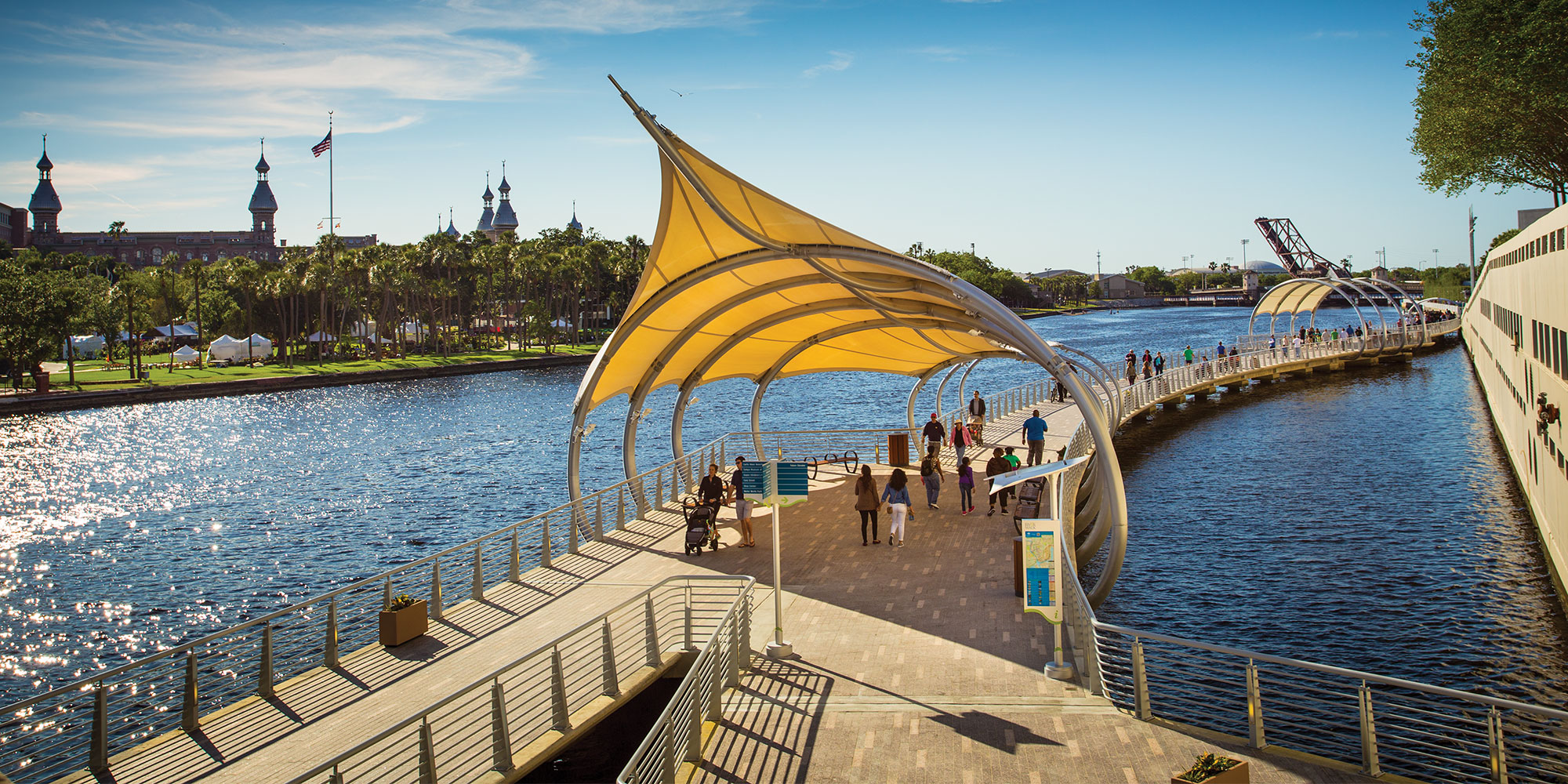
X MARKS THE SPOT
The story includes the Riverwalk, the centerpiece of this Super Bowl, and Curtis Hixon Waterfront Park, which gives Tampa’s downtown new flavor. It winds through the flurry of new hotel properties, such as the $200-million, 26-story, 519-room JW Marriott.
It’s the addition of the Sparkman Wharf waterfront entertainment complex and the unveiling of Midtown Tampa, a $550-million residential and business compound 2 miles south of the stadium.
It’s a $2-billion expansion of Tampa International Airport and a $160-million facelift to Raymond James Stadium, which has new video boards, sound systems, stadium clubs and an 8,000-square-foot sports bar.
“What really excites us are so many interconnected sets of outdoor parks along the Riverwalk that are so helpful in a COVID environment,’’ O’Reilly said. “It’s a compact footprint. Tampa has really evolved and gotten even more united.’’
That’s the chief message of the Host Committee, which is co-chaired by Buccaneers Pro Football Hall-of-Famer Derrick Brooks and Will Weatherford, former Speaker of the Florida House of Representatives.
“Florida has been hit exceedingly hard by the virus, unemployment and the economy, but we always find a way to rise up,’’ Weatherford said. “We have a gritty culture. This Super Bowl, I think, can not only bring our area together, but it can bring some unity to the nation.’’
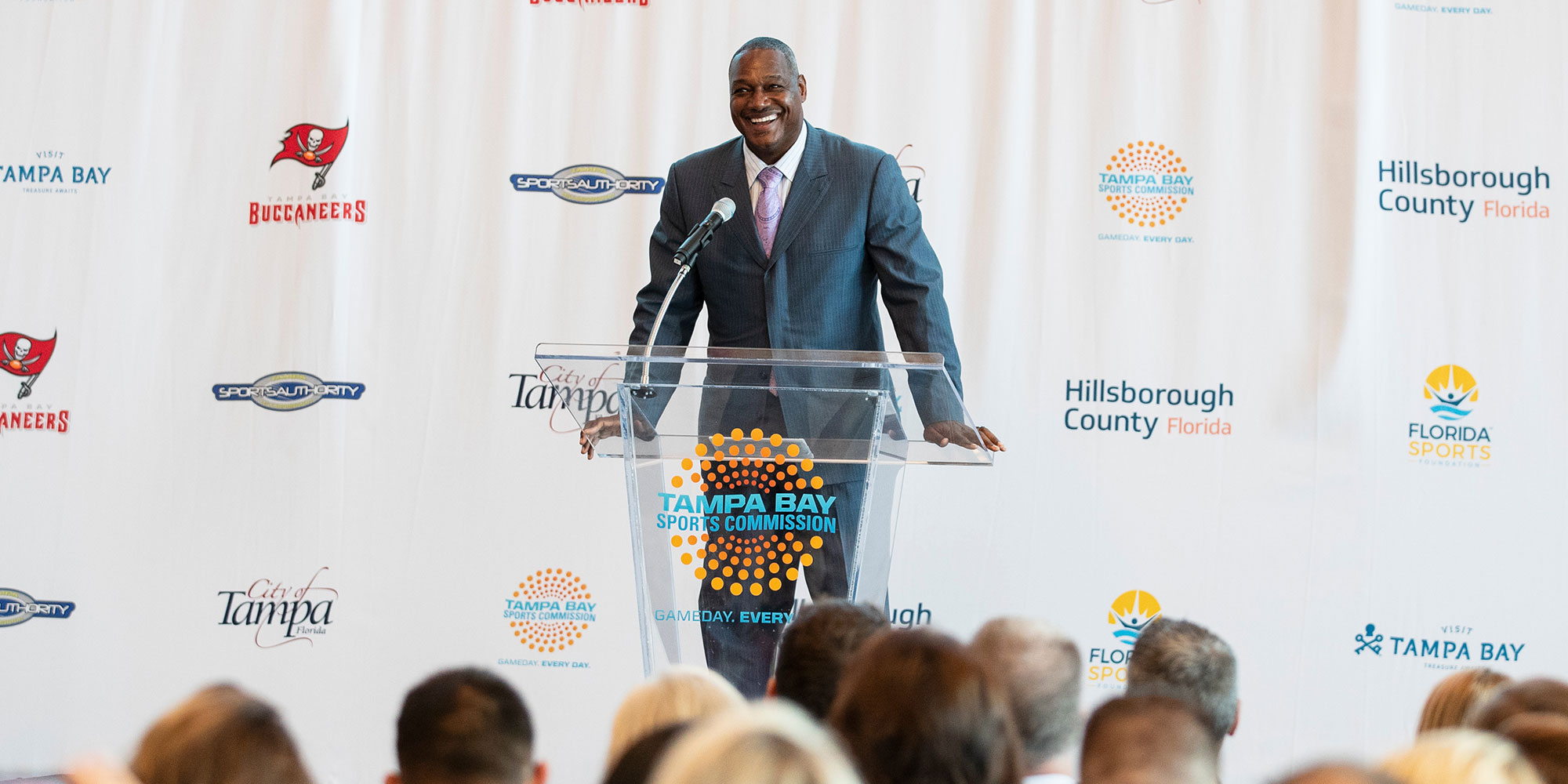
“The Super Bowl brings people together, whether it’s the game, the events, or the partners and clients,’’ Brooks said. “We want to showcase that unity by putting on the best Super Bowl possible. On all levels here, whether it’s the CEOs, the workers or volunteers, our visitors will feel at home. You don’t meet a stranger here.’’
Lisa Urban, director of the Host Committee’s Community Ambassador program, said about 8,000 volunteers will be trained and stationed at the airport, the hotels, along the Riverwalk — anywhere they can assist.
“The pandemic has thrown everyone a curveball, but we want all of our ambassadors to make a great impression, while emphasizing safety and fun,’’ Urban said. “Tampa Bay is all about hospitality. Our visitors will be treated exceptionally well.’’
Jason Aughey, the Tampa Bay Sports Commission’s senior vice president of sports tourism, said the area will soon have an unmistakable Super Bowl feel. More than 1,500 signs and banners will be displayed throughout January. A “mini-Times Square’’ could emerge in Downtown Tampa during Super Bowl week with advertisers displaying messages through traditional signage, but also wallscapes and projections onto downtown buildings.
The pandemic has pushed back some timelines. Many advertisers were awaiting projected game attendance, ticket allocation and hotel capacity before making decisions. Others were evaluating decreased budgets. Some events will be abandoned and others will go virtual. But Aughey said Tampa Bay’s Super Bowl environment will be festive and substantial.
“Tampa is a big city, but it’s also a small big city in the sense that major events don’t get lost here,’’ Aughey said. “There’s no confusion over whether the Super Bowl is in town. This is one the world will remember forever — a Super Bowl in a pandemic. We’re all part of history. The narrative is being written and we have a big say-so in what that story will be. Even in these circumstances, we’re pulling out all the stops.’’
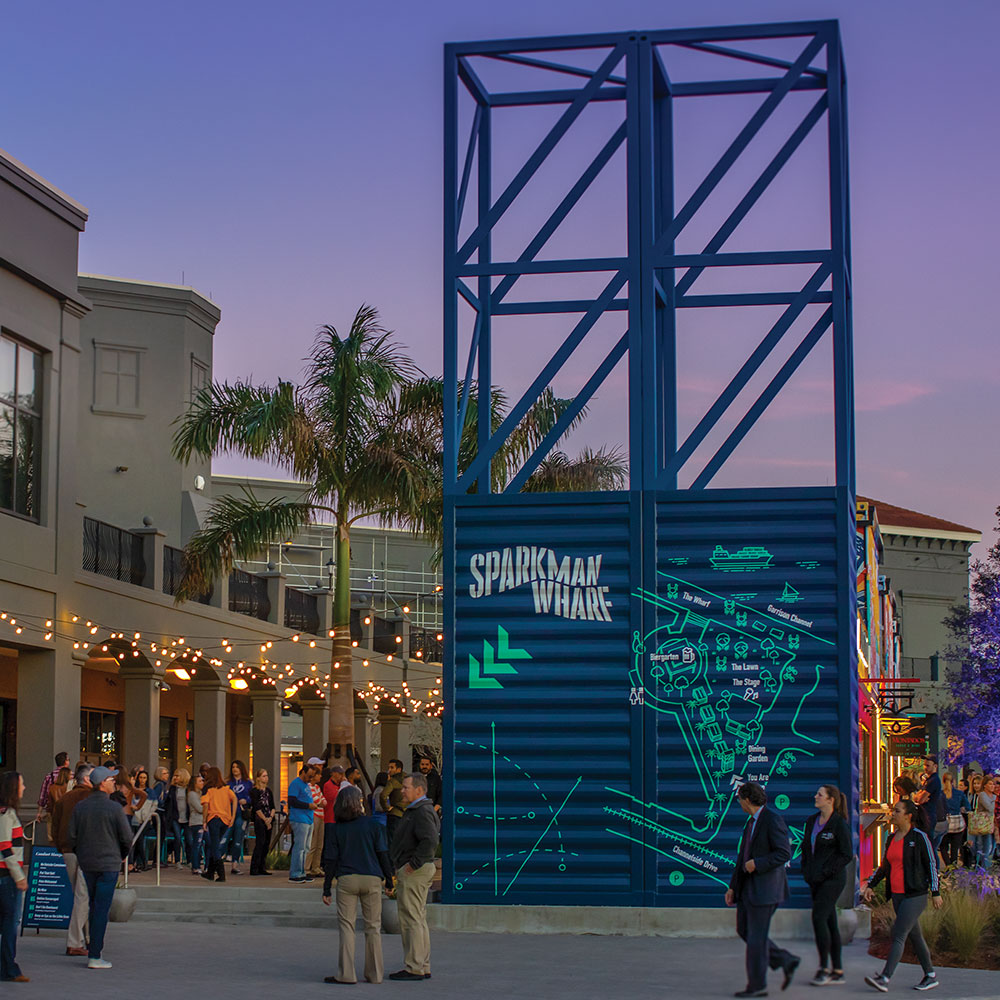
Some of those stops will linger. The $2-million “Forever 55’’ social legacy initiative — $1 million in corporate donations, matched by the NFL — will focus on local programs to aid the stated pillars of early childhood education, food insecurity, families, health and wellness, sustainability and systemic justice. Local beneficiaries include the Hillsborough, Pinellas and Pasco County School Districts, along with nonprofit organizations such as Metropolitan Ministries, the American Cancer Society, Feeding Tampa Bay and Keep Tampa Bay Beautiful.
“Not only are we focused on having the best, safest Super Bowl we possibly can, but we want this event to have a lasting impact on our community,’’ said Claire Lessinger, the Host Committee’s chief operating officer.
For Higgins, the true mark of success is being awarded a sixth Super Bowl. Given the way Tampa Bay stepped up in a pinch, then weathered the unprecedented complications of a pandemic, that would seem likely. Yet as a smaller, socially distanced Super Bowl crowd gets masked up, Higgins won’t take anything for granted.
“Data has driven every decision, with the priority being health and safety,’’ Higgins said. “We have to stay flexible. We need contingency plans for our contingency plans. No matter what gets thrown at us, we want to adapt and be great partners with the NFL.
“Despite how much things have changed, despite the evolving environment, some things haven’t changed. It’s our responsibility to maximize this opportunity for our hometown. We’re honored to host during a time when we all need it the most.’’


